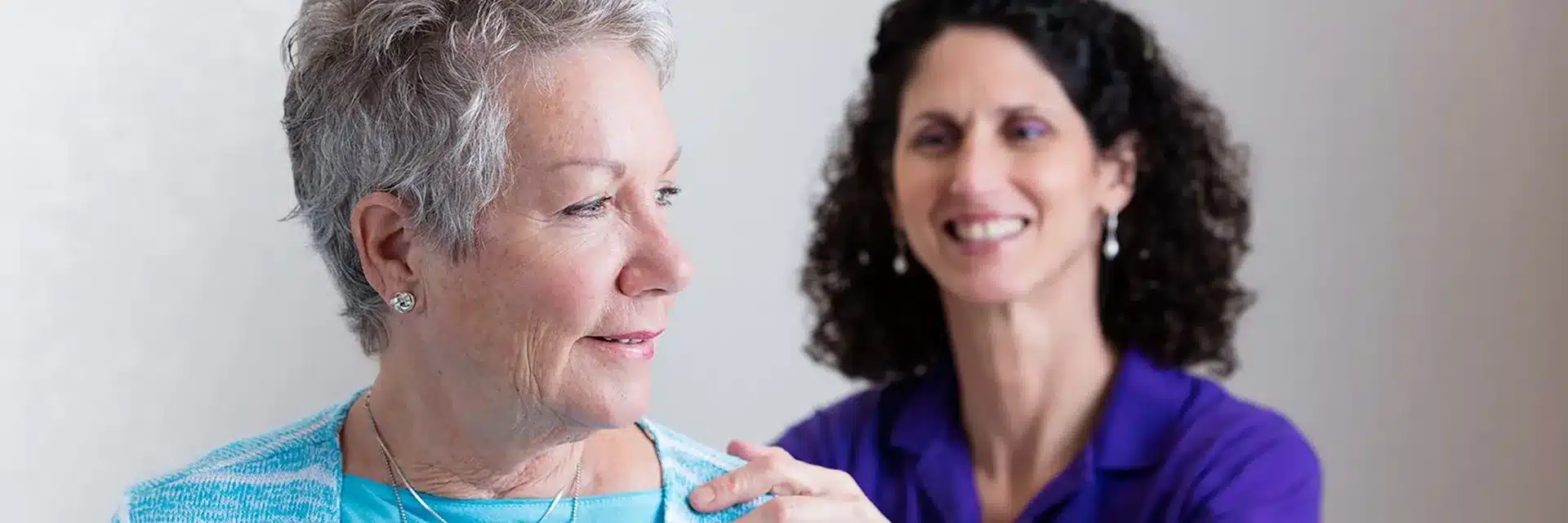At EntireCare Rehab & Sports Medicine, specially trained experts in therapeutic management of pre and post-operative treatments can guide patients through the continuum of care. Therapy services offers manual lymph drainage, or MLD, manual therapy, exercises and functional movement retraining to empower patients to return to quality of life.
Here are suggestions to help you navigate your way through common side effects of cancer treatment.
- Decreased motion in your arm: This is a common side effect of lumpectomy and more often, mastectomy. A way to self-manage is to slowly raise your arm forward, up over your head, as far as you can. Hold in that position for at least 20 seconds to allow the tissue to stretch. You can also accomplish this same stretch by using your fingers to “crawl” up the wall. Raise your arm out to the side and then up toward your ear (“angel in the snow”). Hold for at least 20 seconds. You can also do this lying down on the floor or your bed by sliding your arm along the surface of the floor. This allows you to relax your arm as you move it.
- Painful scarring: This can occur after any surgical intervention for cancer treatment. Scar tissue, which grows quickly, can become firm and painful. It can make moving painful and difficult and can cause shortening of tissues. To help alleviate this, massage the scar by pressing firmly on the area and making small circles. This will help to flatten and soften the scar, thereby decreasing pain, improving tissue pliability and circulation as well as improving appearance of the scar.
- Fatigue: A frequent side effect from chemotherapy. Managing fatigue is not an easy thing to do. When you are exhausted, even the simplest tasks can be overwhelming. When you feel better, you overdo it. It is difficult to find a balance, and frustrating having to limit yourself. Here are some tips to help you:
- Be patient with yourself. When you need to rest, try to embrace it instead of fighting it. Our society seems to be all about being busy, social and productive every minute of the day. So, when you have to rest, you feel lazy, guilty and, because “you look fine,” people don’t understand. You must rest to manage your health!
- On days when you are especially tired, do activities in smaller steps and for shorter time frames.
- Rest before you overdo it.
- Try to become aware or your limits and plan accordingly.
“Chemo brain”: This is the brain fog that can occur from various drugs and chemotherapy. Memory loss is a common complaint, as well as difficulty concentrating and focusing. This problem can be further complicated by fatigue. A good strategy is to keep a schedule of events either on your cell phone or day planner. Day planners are also helpful for writing down information, for example, what was discussed at an appointment. Keep all your information in one place. Keeping multiple notes in various locations is not helpful. Try not to have too many things going on at one time. This creates problems with attending to tasks and staying on track.

